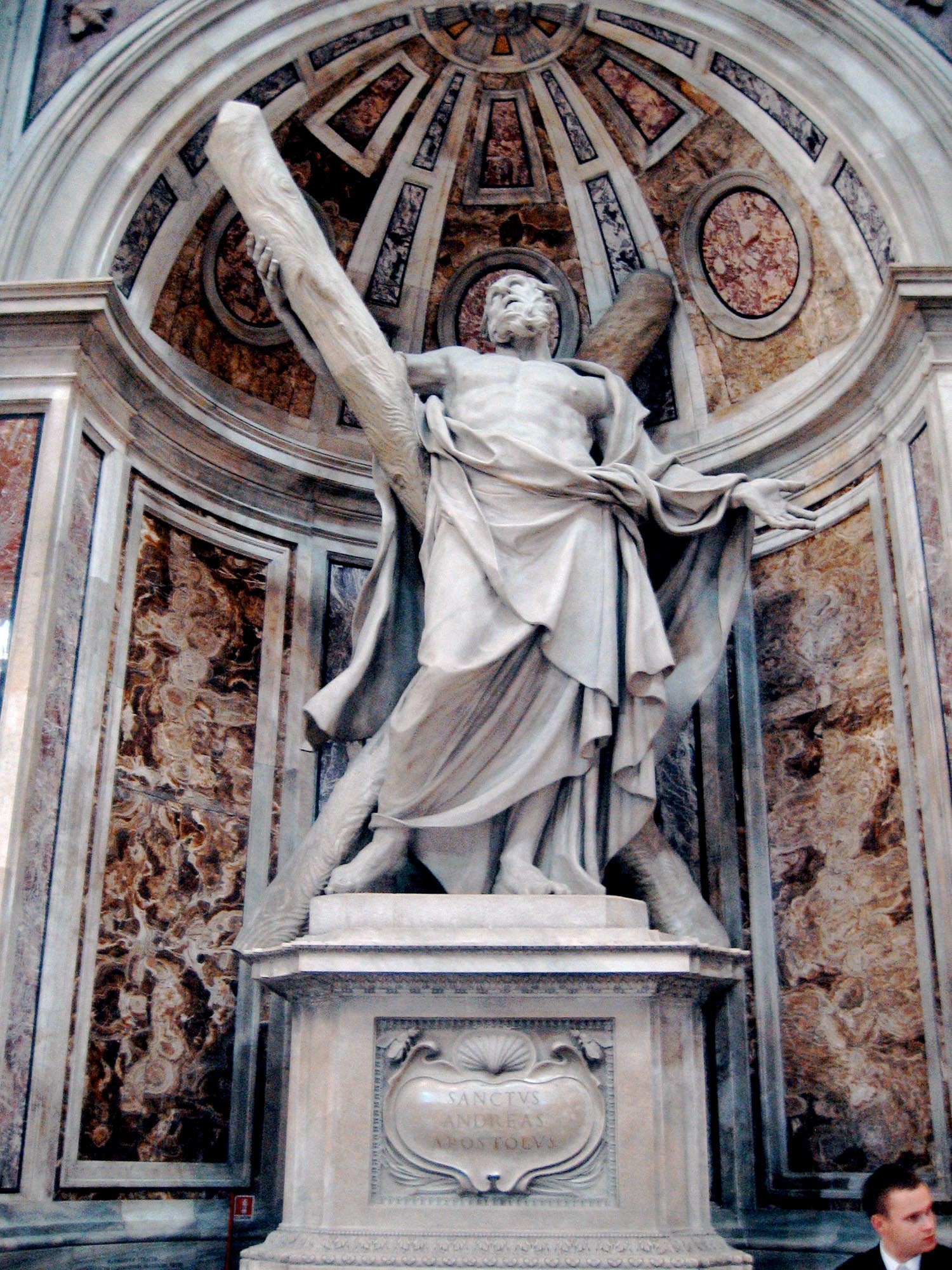Pope Leo XIV – Inaugural Mass Homily
Elected on May 8, 2025, as the 267th successor of St. Peter, Pope Leo XIV’...

Andrew, born at Bethsaida, was a disciple of John the Baptist before he left John to follow Jesus. The Gospel of John tells us that it was actually Andrew who brought his brother Peter to Christ. With Philip he presented the Gentiles to Christ and set the stage for the feeding of the 5,000 in the wilderness by bringing the boy with the loaves and fishes to Jesus. After Pentecost, tradition tells us that he preached the Gospel to many nations and was put to death by crucifixion at Achaia. A famous statue of the martyred apostle carrying his cross can be seen near the main altar at St. Peter’s basilica in Rome.
After Andrew had stayed with Jesus and had learned much from him, he did not keep this treasure to himself, but hastened to share it with his brother.
Notice what Andrew said to him: We have found the Messiah, that is to say, the Christ. Notice how his words reveal what he has learned in so short a time. They show the power of the master who has convinced them of this truth. They reveal the zeal and concern of men preoccupied with this question from the very beginning. Andrew’s words reveal a soul waiting with the utmost longing for the coming of the Messiah, looking forward to his appearing from heaven, rejoicing when he does appear, and hastening to announce so great an event to others. To support one another in the things of the spirit is the true sign of good will between brothers, of loving kinship and sincere affection.
Notice, too, how, even from the beginning, Peter is docile and receptive in spirit. He hastens to Jesus without delay. He brought him to Jesus, says the evangelist. But Peter must not be condemned for his readiness to accept Andrew’s word without much weighing of it. It is probable that his brother had given him, and many others, a careful account of the event; the evangelists, in the interest of brevity, regularly summarize a lengthy narrative. Saint John does not say that Peter believed immediately, but that he brought him to Jesus. Andrew was to hand him over to Jesus, to learn everything for himself. There was also another disciple present, and he hastened with them for the same purpose.
When John the Baptist said: This is the Lamb, and he baptizes in the Spirit, he left the deeper understanding of these things to be received from Christ. All the more so would Andrew act in the same way, since he did not think himself able to give a complete explanation. He brought his brother to the very source of light, and Peter was so joyful and eager that he would not delay even for a moment.
FOR A FREE ADVENT “CHEAT SHEET” with many practical suggestions on how you and your family or study group can hope to make this the best Advent and Christmas Season ever, either sign up for free on our email list or confirm your existing subscription and then email us at [email protected] asking for your free copy. This document is not posted publicly on our website and is for our subscribers only.
For an explanation on the significance of the apostle Andrew and the other apostles of Jesus, read Dr. Italy’s post THE APOSTLES – WHO WERE THE TWELVE?
This excerpt from a homily on the Gospel of John by St. John Chrysostom appears in the Roman Office of Readings for November 30, the Feast of Saint Andrew the Apostle, son of Zebedee and brother of St. Peter. The accompanying biblical reading is 1 Corinthians 1:18-25.
No Comments